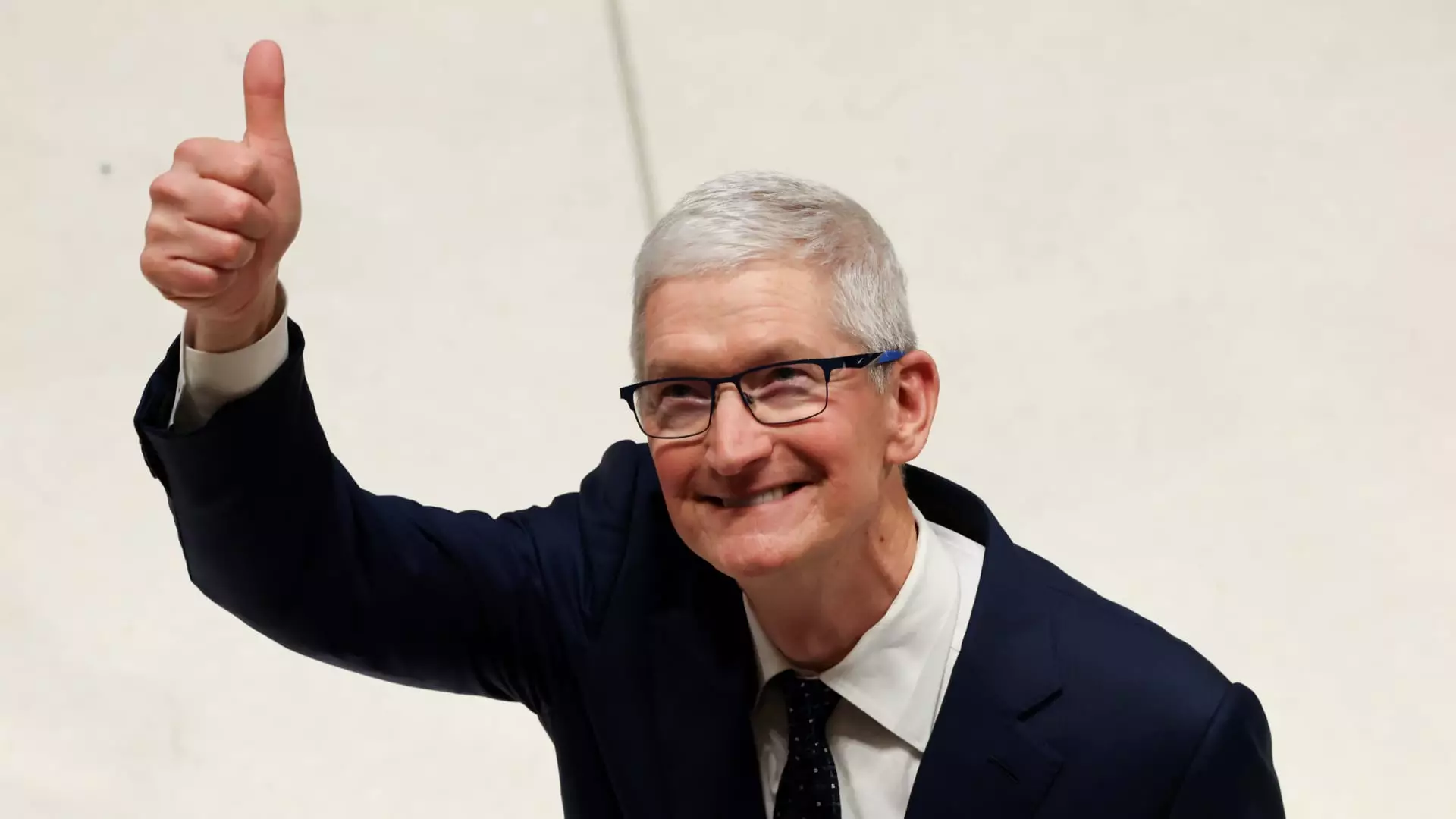In a significant legal confrontation, Apple has successfully defended its users’ privacy rights against a controversial demand from the U.K. government to create a “backdoor” mechanism for accessing encrypted data on iPhones. This battle encapsulates the ongoing global struggle between government authorities that seek stronger surveillance tools to combat crime and terrorism, and tech companies, such as Apple, that prioritize user privacy and data protection. The recent ruling from the U.K.’s Investigatory Powers Tribunal not only dismissed the government’s plea to maintain the hearing details under wraps but also highlighted a critical principle—the right to transparency and open justice.
The Dangerous Precedent of Secrecy
At the heart of the tribunal’s decision was the assertion that shielding court proceedings from public view would represent an egregious breach of judicial integrity. Judges Rabinder Singh and Jeremy Johnson articulated that conducting a completely secret hearing without public knowledge would undermine the fundamental tenets of open justice. Their ruling serves as a strong reminder that safeguarding national security should not come at the expense of transparency in a democratic society. The philosophical implications of concealing judicial processes are profound; such actions could set a dangerous precedent, enabling arbitrary government overreach masked under the guise of security.
Apple’s Commitment to User Privacy
Apple’s stance epitomizes a larger narrative of corporate responsibility in protecting consumer rights. On multiple occasions, the tech giant has reiterated its commitment to safeguarding user data through end-to-end encryption, refusing to comply with demands to weaken these protections in favor of easy governmental access. The existence of a “backdoor” would, in theory, facilitate law enforcement access to user data. However, it invariably creates a pathway for misuse, raising alarm about the potential for unauthorized breaches into private information by both state actors and malicious entities. Indeed, Apple’s decision to retract its Advanced Data Protection (ADP) system in light of the government’s order is a testament to its ethical stance, illustrating that compromising user security is simply off the table.
The Broader Implications for Global Tech Policy
This incident in the U.K. is part of a larger trend observed in various jurisdictions globally. Governments—particularly in the U.S., U.K., and EU—remain dissatisfied with end-to-end encryption, citing its potential to hinder investigations into illicit activities. As the Investigatory Powers Act of 2016 highlights, this dilemma presents a complex challenge. On one hand, the government argues for the necessity of encryption backdoors to ensure public safety, while on the other, privacy advocacy groups warn against the risks that such measures pose to civil liberties and personal security.
The battle for encryption will likely heat up significantly as technological advancements continue to outpace regulatory frameworks. The growing sophistication of cyber threats increases the urgency for governments to address this issue head-on. However, a critical examination of these developments reveals that simply adopting coercive measures against tech entities could lead to a fragmented and harmful landscape that undermines user trust.
The Privacy Debate: A Call to Arms for Citizens and Tech Companies Alike
As citizens, the onus lies on us to hold governments accountable and demand transparency, particularly concerning our most intimate data. The fervor around privacy ought to be a rallying point for consumers and tech leaders alike—corporations must adopt a more proactive role in advocating for protective legislation while ensuring that their data handling practices remain robust. Apple’s stance should inspire other technology companies to adopt similar principles, advocating a technology landscape that puts user privacy at the forefront, rather than yielding to government pressure for surveillance access.
In this ongoing dance between privacy and security, an important lesson emerges: the fabric of society is sewn tightly with trust—trust that our rights are honored, and our data is safeguarded. As such, a proactive approach from tech companies that aims to strengthen privacy while collaborating constructively with governments is not just desirable; it is essential in maintaining the delicate balance of a free society.


Leave a Reply